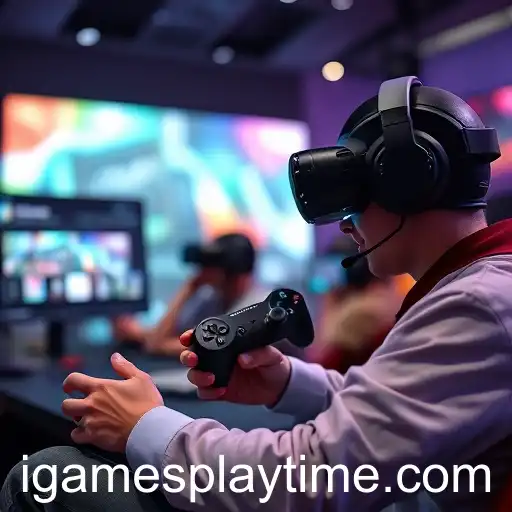
An in-depth analysis of the shifting dynamics in gaming playtime, exploring the current trends reshaping player engagement in the gaming industry.
In an ever-evolving digital landscape, the gaming industry continues to adapt to new player expectations and technological advancements. As we navigate through the decade, 'games playtime' has emerged as a crucial metric for understanding player engagement and game success. The shift from traditional pay-to-play models to free-to-play and subscription-based offerings has deeply influenced how players interact with games.
In 2025, we're observing a distinctive trend towards more personalized gaming experiences. Developers are leveraging artificial intelligence to create adaptive gaming environments that respond to individual player preferences. This innovation not only enhances player satisfaction but has also proven to increase average playtime significantly. With AI-driven content and dynamic narratives, players find themselves more invested in the gaming world than ever before.
Meanwhile, the rise of cloud gaming services continues to democratize access to high-quality games. As these platforms gain momentum, they provide players with the flexibility to play across multiple devices seamlessly. This accessibility encourages longer session playtimes as players can transition effortlessly from desktop to mobile at their convenience.
Simultaneously, the gaming community has become a central aspect of many players' lives. Multiplayer games, supported by robust social components, allow for meaningful interactions beyond just gaming. Community events, live streams, and in-game collaborations foster a sense of belonging, further encouraging prolonged playtime and deeper engagement.
Industry reports in 2025 indicate that the average playtime per week has increased, thanks in part to these evolving trends. While the debate over screen time continues, game developers emphasize the importance of balancing engagement with healthy gameplay habits. Efforts such as playtime reminders and ergonomically designed interfaces demonstrate a commitment to player welfare.
As we look to the future, 'games playtime' is not just a statistic but a narrative of how the industry and players are reshaping the gaming experience. The next few years promise even more breakthroughs as technology and player communities continue to redefine what it means to play games.




